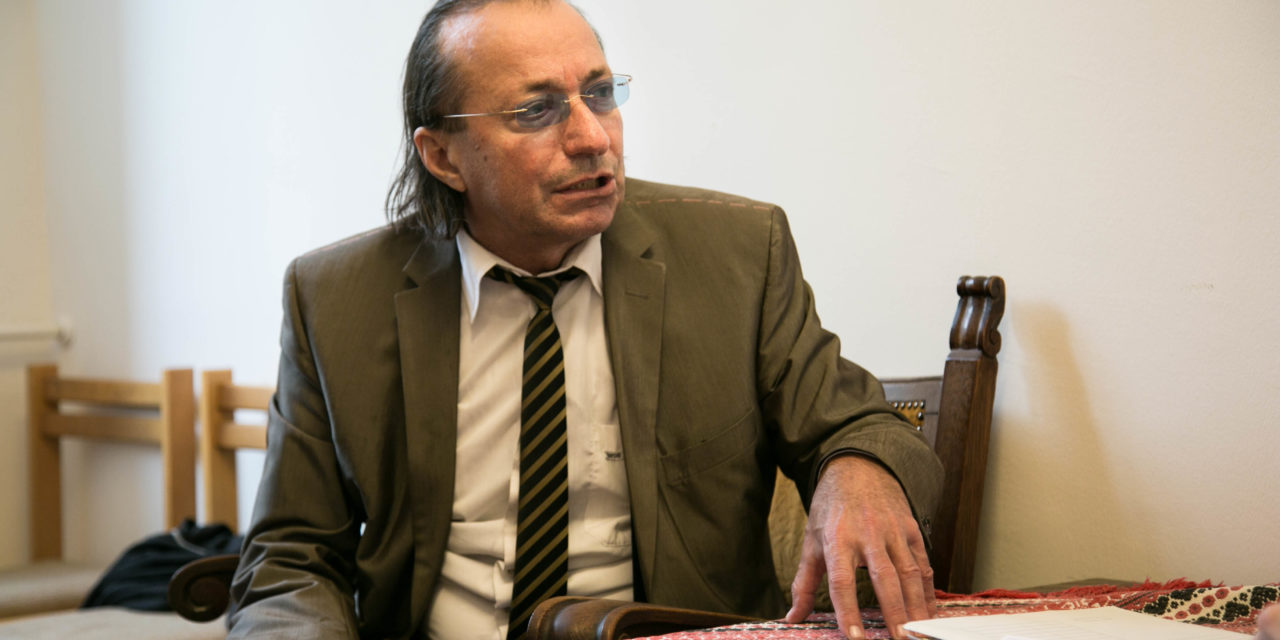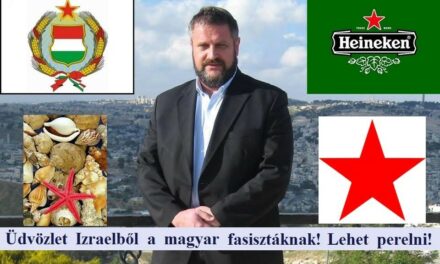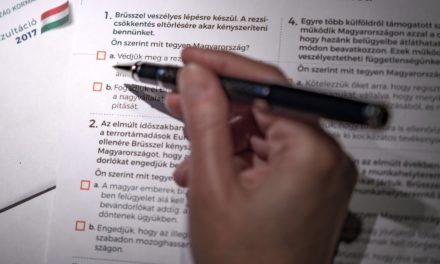We hardly believe that another self-destruction can be avoided, but we hope that we will have the strength to stay out of it, no matter what happens. Written by Károly Szerencsés.
Eighty-three years ago, the war began in Europe, to the antecedents, outbreak and course of which the current and possible future situation is so willingly compared. I would strongly caution against the schematic projection of certain elements of the historical past onto today's conditions and possible future steps.
The war, which began on June 22, 1941, was essentially a German-Soviet war. And of course, the foundation, core and decisive power of the Soviet Union was Russia. Already in the era, the interpretation of war broadened. On the part of Germany, the "Europe's crusade against Bolshevism" , which was supported by the fact that, in addition to the Third Reich (which already included Austria, the Czech Republic and part of Poland), Romania and Finland marched there most determinedly (from June 22). , then Italy, Slovakia, Hungary, Bulgaria, Croatia, and Norwegians, Danes, Flemish, Spanish and even French in volunteer units. Of course, the Islamic units organized alongside the Wehrmacht were not used for the "Crusade of Europe"
The interpretation of the war by the Russians was more interesting. On the one hand, they a "Great Patriotic War" , but identified the "homeland" with the Soviet Union. At the same time, some elements of this empire did not feel like a "Soviet member state" at all, so primarily Lithuania, Estonia, Latvia; nor even Moldova (Bessarabia) and Ukraine itself, where the traditions of independence and anti-communism were strong.
Enthusiasm for the Russians and the Communists was not pure in the Caucasus and Central Asia either. It was a significant feat of Stalin that, in addition to the means of repression and coercion (NKVD formations), he succeeded in whipping up hatred towards the enemy along with patriotism, which paid off on the battlefield. The stupid cruelty of the Germans and the Baltics and Ukrainians who collaborated with them played into this, which may have had some deep psychological basis.
Perhaps the realization in the winter of 1941 that there was no way they could win the war. The fear of punishment. All this is covered with the onion of "superiority".
However, there was another element in the interpretation, according to which the Soviet Union is the "leading force in the fight against fascism and national socialism" and is waging this fight for the sake of democracy and freedom. Now to the end, that is, the goal is no longer the liberation of the homeland, but also the liberation of oppressed Europe. For this, he received the approval of Great Britain and the United States of America, and the countries dominated by them.
There was an irresolvable contradiction here: a bloody dictatorship cannot in any way bring freedom or set you free.
So Churchill and Roosevelt allied themselves with the Russians, who were fighting the Patriotic War, to defeat Germany. But the Russians were identical to the bearers of Stalin's communist ambitions for world domination. They knew this in Washington and London, of course, but National Socialist Germany was too dangerous. Not only because of its aggressive expansion policy, but also because of its seemingly very successful socio-economic solutions. Which included the elimination of parliamentary democracy, its "transcendence" and a viable - for millions of course "deadly" - socialist solution.
The United States and Great Britain (Australia, Canada, India, South Africa, New Zealand) could have defeated Germany even without the Soviet Union, but at what cost! It seemed smarter to hire the Russians as "democrats" and cannon fodder, let them do the heavy lifting.
In the end, America will get involved and prevent the Red Army from reaching Paris, as Tsar Alexander's troops once did. That is why they supported the Soviet Union with an amazing amount of weapons and materials. This is fine, except that it was obvious that this would bring a significant part of Europe into the Soviet sphere of interest. It comes under Soviet occupation, and sooner or later it will be Sovietized. For how long? Who knew this in advance?
There's one problem. That we live in this part of Europe. We were affected by this deal made above our heads. I'm going further. Any war that breaks out in Europe between "East and West" fundamentally affects us.
It puts us in an impossible situation. Those of us in the middle. It threatens our development and even our lives. It gets on our nerves. Either side wins. Because the road to victory is long, and we already feel that the earth is shaking from the bombs. We are already severely constrained by preparations for war. We are already under such pressure that it makes our lives very difficult. They would expect humiliation, our basic interests to be thrown into silence. We don't do it, because the only unappealable lesson of our history is not to get involved in the armed conflicts or economic wars of other powers and interest groups.
We may be doing badly in the short term, but we have to look at the long term. This is the only way we can survive. For some it is important that we remain as a nation, for some it is not important. The latter became Hungarians who were more Nazi than Nazis and more communist than communists. They are not even Hungarians, just "brothers" or "comrades".
Let's examine how the situation eighty-three years ago can be compared with today. According to the Russians, the "West" is attacking them, just like in 1941. They haven't announced the "Greatest Patriotic War" , because they remember how many victims the last one involved. They would finish it, of course, by keeping the occupied territories and forcing the neutrality of Ukraine. They abandoned communism a long time ago, they have no intention of Bolshevizing Europe. Today's Russia does not have a relationship of gratitude to the former Soviet Union. Neither territorially, nor economically, nor with its internal scarcity. This is not contradicted by the fact that they are proud of their victory in the war, they use their flags, awards, and addresses of that time, which often contain signs referring to the communist ideal. Since the "West" is now seen as the enemy, not a word is uttered about the huge help that came from the United States and Great Britain during the Great Patriotic War, or about the alliance at all.
According to the "West", today the Russians are attacking Europe - they want to invade - like in 1920 or 1945. That is why Russia is not invited to World War II victory celebrations and D-Day parades. As if Russia did not take part in this war. As if Russia was a Bolshevik aggressor, as it was in 1920, but failed under Warsaw. Or it was in 1941, when he was fully prepared to invade Germany (and Europe). It is now well-known in well-read circles that Stalin prepared for the attack in July 1941 based on Lenin's teaching, and for this he marched a huge offensive force to the German-Romanian-Finnish border.
The shrewd-brained analysts drew the conclusion from the Russian plans and actions of 1920 and 1941 that today's Russia is preparing to invade Europe. It was true once, but is it true today? Russia is undoubtedly an empire, and empires want to expand. It comes from their inner essence. Regardless of whether the "Third Rome" is growing, or the Bolshevik Communist Soviet State. However, Russia today cannot threaten Europe under any circumstances. This is contradicted by the fact that it still occupies the eastern part of Ukraine. Now let's see why this happened. Who started the war, who benefits, who are the instigators? What is it all about?
The English were the most belligerent at the beginning, because as they left the European Union, it became obvious that that great European quasi-empire could come under German control. The Germans walked nicely into the trap (the National Socialist legacy!); the French immediately jumped at the chance - they can take risks more freely - and the others are more focused on America. The war show is being prepared.
This is where we stand now, eighty-three years after the outbreak of the Second World War. We hardly believe that another self-destruction can be avoided, but we hope that we will have the strength to stay out of it, no matter what happens.
Featured image: Viktor Krĉ













